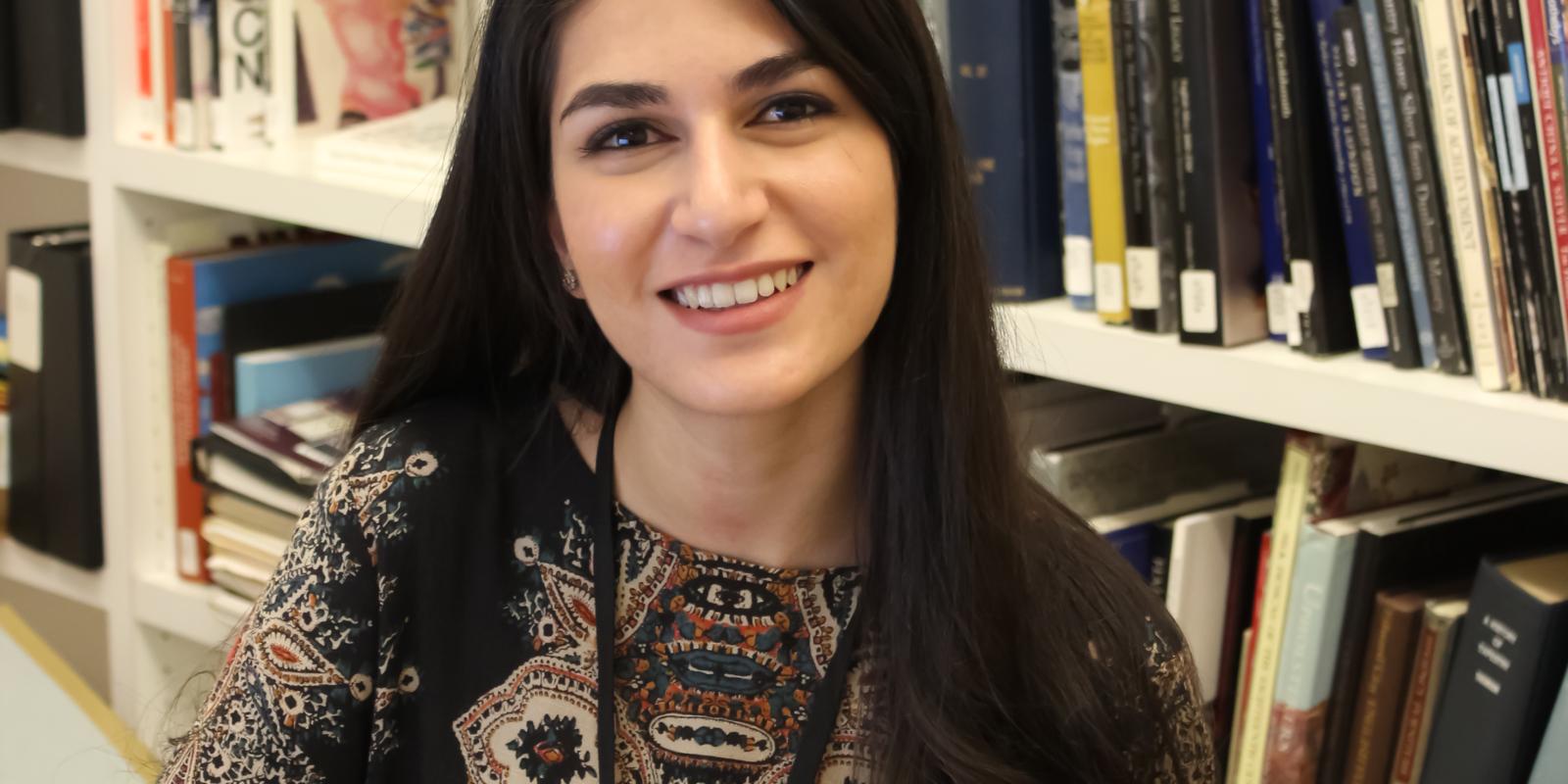
Dismantling Cultural Stereotypes Through Islamic Art and Architecture
“Many of my mentors back in the United States wanted me to work with Bernard O’Kane, professor of Islamic art and architecture in AUC’s Department of Arab and Islamic Civilizations because he is one of the most distinguished scholars in this field,” recounted Mai Mohamed Kolkailah ’21 on what made her join AUC.
At that time, Kolkailah was a Mellon Undergraduate Curatorial Fellow at the Museum of Fine Arts in Houston prior to pursuing her graduate studies.
After immersing herself in the Art of the Islamic Worlds Department there and working with several other museums in the field, she wanted to specialize in Islamic art and architecture due to the “significant lack of diversity within the curatorial teams” she recognized. Her curatorial supervisor highly recommended AUC’s program. Later, she indeed joined the University and received the Nadia Niazi Mostafa Endowed Fellowship in Islamic Art and Architecture.
“The deficit of Arabic expertise among Islamic art specialists at museums is primarily what motivated me to focus on this field,” said Kolkailah. “In our increasingly geopolitical world where Islam is often misrepresented and thus misunderstood, I realize my role as an Arab American, Muslim woman in dismantling cultural stereotypes and presenting Islamic art within contexts that elucidate nuanced understandings of the Islamic culture.”
Kolkailah’s goal is to become a scholar and curator of Islamic art and architecture, hoping to publish her graduate research and obtain her PhD in the next few years. “AUC’s program not only gave me the specialized Islamic art training necessary for that but also provided me with the platform opportunities and academic credibility I needed to achieve my goals,” she asserted.
Indeed, two of her favorite courses turned out to be those by Professor O’Kane, namely Decorative Arts and Art of the Book, attributed to the wealth of information she acquired about Islamic art as opposed to just architecture.
“I feel like all my favorite moments at AUC happened, thanks to Professor O’Kane, from our adventures on field trips visiting Islamic architecture to our intriguing debates in class, his library assignments that felt like scavenger hunts for books, and, last but not least, joining the admirable initiative of publishing on Wikipedia for our final papers,” narrated Kolkailah. “Quite frankly, my graduate school experience would have been average if it wasn’t for his mentorship.”
Yet Kolkailah emphasized that “one of the perks of finally doing what you love is that you find most, if not all, of the courses you take are interesting.”
She recalled a particular course, Hadith, led by Ahmed Khan, assistant professor in the Department of Arab and Islamic Civilizations. “The class was outside of my specialty, and I took it as an elective. I was out of my depth, to say the least,” she reflected. “The challenge of catching up and the pressure of going head-to-head with graduates specializing in Islamic studies is precisely why this seminar resonated with me. The knowledge I gained from Professor Khan definitely honed my understanding of Islamic material culture.”
And on that note, just like the course was unexpectedly one of her memorable ones, Kolkailah concluded that “life doesn’t always play out according to the scenarios we plan,” emphasizing that “whichever way my professional and academic journey unfolds, I hope to make my mentors and department proud as a token of my appreciation for the knowledge, time and effort they have invested in me.”
One particular thing she’s grateful for is how supportive her department was when her father passed away. "I am grateful to all my professors for trying to reach out and sharing words of comfort,” she stressed. “My father was an extraordinary man, and I would not have become the woman I am proud to be today if it wasn’t for him.”